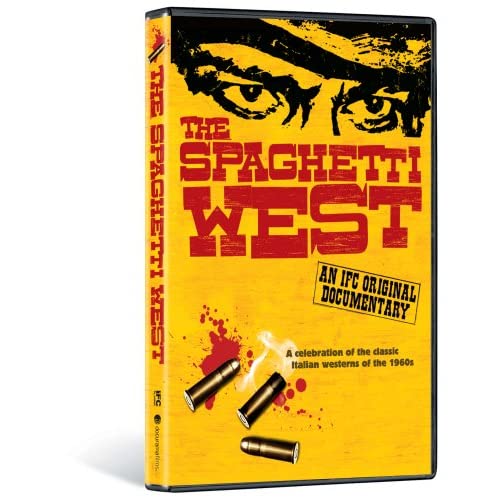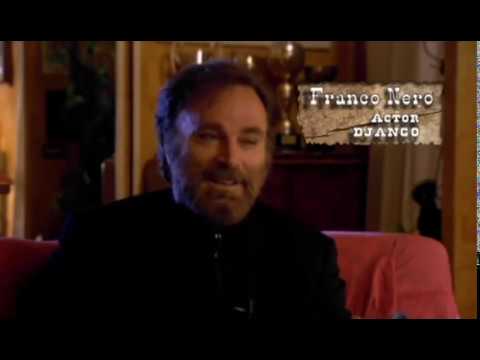From DVD Talk
http://www.dvdtalk.com/reviews/review.php?ID=28519
The Spaghetti West - An IFC Original Documentary
Docurama // Unrated // $26.95 // June 26, 2007
Review by David Walker | posted June 8, 2007
The Film:
I have to admit that I went into this documentary with more than my fair share of apprehension. Promoted as “a celebration of the classic Italian westerns of the 1960s,” this documentary, produced for IFC, was going to have to go a long way to impress me.
Without sounding like some sort of snob–which I may or may not be, depending on who you talk to–I am, if little else a die-hard fan of spaghetti westerns. I know a lot of people who also claim to be fans of westerns produced in Europe, primarily by Italians. But most of these people are nothing more than fans of Sergio Leone, the filmmaker most closely associated with the genre. And while Leone’s reputation as one of the premiere directors of Italian westerns is well deserved, and appreciation of his films does not a spaghetti western fan make. It is when can start talking about the other Sergios–Corbucci, Sollima and Martino–as well as people like Enzo Castellari, Damiano Damiani, Ennio Morricone, Tomas Milian and Franco Nero, that you can really start to call yourself a fan of Italian westerns.
The Spaghetti West offers a fast-paced tutorial to the European produced westerns that emerged out of Italy in the early 1960s, and quickly grew in popularity, spawning over 500 entries in the genre within a decade’s time. Leone’s Fistful of Dollars is the film that launched the craze, and it helped catapult an actor named Clint Eastwood from television star to international movie star. The tremendous popularity of Leone’s first western opened a floodgate that gave rise to and entire generation of Italian directors and stars.
Written, produced and directed by David Gregory, who clearly knows his subject matter, The Spaghetti West is a crash course for anyone who knows little to nothing about the genre, but it also offers some interesting background for diehard fans who think they know everything. Gregory’s documentary is rich with clips from a wide variety of films–most of them well-known to fans of the genre–as well as a wealth of interviews. Some of the interviews are older, as filmmakers like Leone and Corbucci have been long dead. But more recent conversations with aging filmmakers offer even greater insight into the work they did, as well as the genre itself. Damiano is very adamant that his seminal work A Bullet for the General was not a western, but rather a political film. Sollima, whose work was always uncompromising and politically charged, comes across as a grouchy old man who takes great insult at the term “spaghetti western.” And Casterelli, whose film Keoma was one of the last great spaghetti westerns, succinctly sums up the difference between Italian and American westerns when he explains, “The issue of morality belongs to the American western.”
Video:
The Spaghetti West is presented in widescreen, with various different aspect ratios. Most of the film clips that appear throughout the documentary appear to have been mastered from very good sources, with clean transfers and vibrant colors. Audio:
The Spaghetti West is presented Dolby Digital stereo.
Extras:
There are no bonus features.
Final Thoughts:
The Spaghetti West is a solid documentary that manages to be amazingly comprehensive for only clocking in at less than 55 minutes. In fact, if the film has any true flaw it’s that it runs too short. You could spend the entire run time of this documentary focusing solely on Leone or Corbucci, and in covering them and so much else, The Spaghetti West can feel a bit rushed. More than anything, the documentary itself feels like something that would turn up as a bonus feature on some other disc. Fans of Italian westerns will enjoy the film, and probably find reason to watch it more than once. Those that are unfamiliar with the genre, or only know the work of Leone will definitely get a lot out of The Spaghetti West. The problem, however, is that it is difficult to encourage people to buy a film like this, which is less than an hour long, and has no bonus features. So while the film is most definitely worth watching, I’d be hard-pressed to spend my hard-earned money buying a copy.
[center] [/center]
[/center]



 Incredible
Incredible